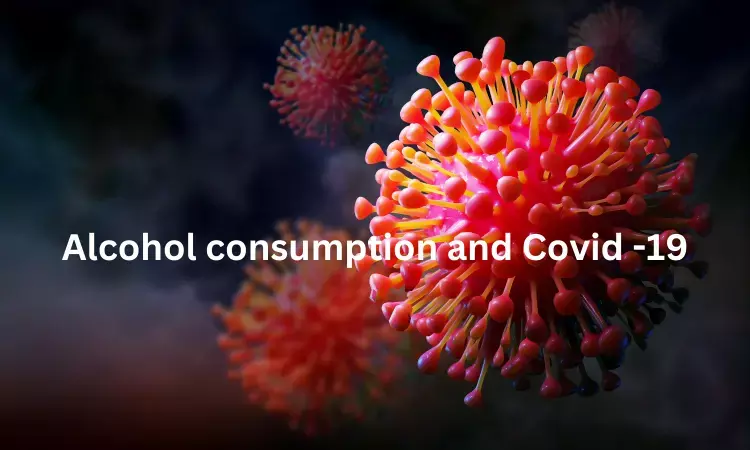- Home
- Medical news & Guidelines
- Anesthesiology
- Cardiology and CTVS
- Critical Care
- Dentistry
- Dermatology
- Diabetes and Endocrinology
- ENT
- Gastroenterology
- Medicine
- Nephrology
- Neurology
- Obstretics-Gynaecology
- Oncology
- Ophthalmology
- Orthopaedics
- Pediatrics-Neonatology
- Psychiatry
- Pulmonology
- Radiology
- Surgery
- Urology
- Laboratory Medicine
- Diet
- Nursing
- Paramedical
- Physiotherapy
- Health news
- Fact Check
- Bone Health Fact Check
- Brain Health Fact Check
- Cancer Related Fact Check
- Child Care Fact Check
- Dental and oral health fact check
- Diabetes and metabolic health fact check
- Diet and Nutrition Fact Check
- Eye and ENT Care Fact Check
- Fitness fact check
- Gut health fact check
- Heart health fact check
- Kidney health fact check
- Medical education fact check
- Men's health fact check
- Respiratory fact check
- Skin and hair care fact check
- Vaccine and Immunization fact check
- Women's health fact check
- AYUSH
- State News
- Andaman and Nicobar Islands
- Andhra Pradesh
- Arunachal Pradesh
- Assam
- Bihar
- Chandigarh
- Chattisgarh
- Dadra and Nagar Haveli
- Daman and Diu
- Delhi
- Goa
- Gujarat
- Haryana
- Himachal Pradesh
- Jammu & Kashmir
- Jharkhand
- Karnataka
- Kerala
- Ladakh
- Lakshadweep
- Madhya Pradesh
- Maharashtra
- Manipur
- Meghalaya
- Mizoram
- Nagaland
- Odisha
- Puducherry
- Punjab
- Rajasthan
- Sikkim
- Tamil Nadu
- Telangana
- Tripura
- Uttar Pradesh
- Uttrakhand
- West Bengal
- Medical Education
- Industry
Chronic alcohol consumption may negatively impact COVID-19 outcomes: Lancet

Alcohol has become an important part of the society, people drink to socialize, celebrate, and relax. Alcohol often has a strong effect on people and is addictive its adverse effects is a rising concern. Alcohol consumption is widespread in the United States, with 55% of the American population over 18 years of age reporting alcohol use within the last 30 days. Alarmingly, 25% and 6.3% of adults over 18 years of age are classified as binge or Chronic heavy drinkers (CHD).
Few studies have hypothesized that chronic alcohol consumption negatively impacts COVID-19 outcomes; the interplay between chronic alcohol use and SARS-CoV-2 infection outcomes has yet to be elucidated. To throw light on the same a group of researchers conducted a study published in The Lancet.
The study found that CHD negatively impacts pathogen clearance and tissue repair, including in the respiratory tract, thereby increasing susceptibility to infection. In both humans and macaques the data indicated aberrant inflammation and reduced antiviral responses in the lung with chronic alcohol drinking. The study demonstrated that impaired response to pathogens involves CHD-induced transcriptional changes that then increase both susceptibility and severity of SARS-CoV-2 infection.
The researchers in the study employed luminex, scRNA sequencing, and flow cytometry to investigate the impact of chronic alcohol consumption on SARS-CoV-2 anti-viral responses in bronchoalveolar lavage cell samples from humans with alcohol use disorder and rhesus macaques that engaged in chronic drinking.
The key findings of the study are
• The data study shows that in 6 humans and 11 macaques, the induction of key antiviral cytokines and growth factors was decreased with chronic ethanol consumption.
• Moreover, in macaques fewer differentially expressed genes mapped to Gene Ontology terms associated with antiviral immunity following 6 month of ethanol consumption while TLR signaling pathways were upregulated.
Researchers ended that “These data are indicative of aberrant inflammation and reduced antiviral responses in the lung with chronic alcohol drinking. Our study supports this conclusion with the demonstration that impaired response to pathogens involves CHD-induced transcriptional changes that then increase both susceptibility and severity of SARS-CoV-2 infection.”
Reference: Sloan A. Lewis, Isaac R. Cinco et al; Chronic alcohol consumption dysregulates innate immune response to SARS-CoV-2 in the lung et al 2023 DOI: https://doi.org/10.1016/j.ebiom.2023.104812.
MSc. Neuroscience
Niveditha Subramani a MSc. Neuroscience (Faculty of Medicine) graduate from University of Madras, Chennai. Ambitious in Neuro research having worked in motor diseases and neuron apoptosis is interested in more of new upcoming research and their advancement in field of medicine. She has an engrossed skill towards writing and her roles at Medical dialogue include Sr. Content writer. Her news covers new discoveries and updates in field of medicine. She can be reached at editorial@medicaldialogues.in
Dr Kamal Kant Kohli-MBBS, DTCD- a chest specialist with more than 30 years of practice and a flair for writing clinical articles, Dr Kamal Kant Kohli joined Medical Dialogues as a Chief Editor of Medical News. Besides writing articles, as an editor, he proofreads and verifies all the medical content published on Medical Dialogues including those coming from journals, studies,medical conferences,guidelines etc. Email: drkohli@medicaldialogues.in. Contact no. 011-43720751


